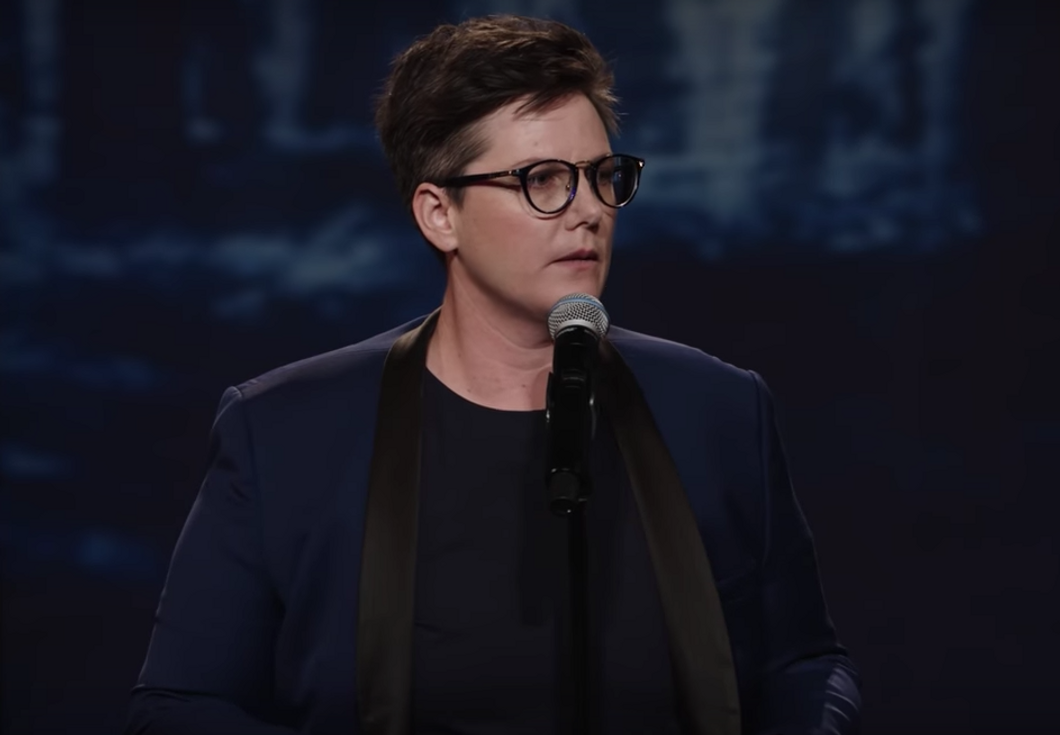Just like her demeanor in her stand-up special, "Nanette," Hannah Gadsby has quietly but forcefully picked up steam since Netflix premiered the work in June.
While well-established prior to her international debut, the Australian comic connected with audiences for a good reason: Gadsby is conversational and genuine, especially when speaking to the main heart of the show.
Gadsby opens by joking that she named the special after a woman she met prior to writing it and described her experience growing up gay in Australia while it was illegal.
Gadsby tackles the topic from multiple angles that anyone can relate to: joking she "got a letter" saying she was gay, analyzing shyness in relation to the flamboyancy of gay pride, noting that lesbians were overlooked in contrast to gay men and forgetting or even purposefully not coming out after a long period of time.
For many viewers, this is their first interaction with Gadsby, but she feels like someone you've known for years. It's relatable, comforting and funny to see someone so similar to yourself on a stage, talking about the things you've experienced.
While it's common for comedians to relate to their audiences, Gadsby's performance is more intimate in the parts where she talks about being marginalized.
Early on in the show, Gadsby establishes her ground in the most inspiring criticism of comedy: she notes that she began with self-deprecating humor, but stepped away from it as her career progressed.
Explaining her choice, Gadsby said: "Do you understand what self-deprecation means when it comes from somebody who already exists in the margins? It's not humility. It's humiliation. I put myself down in order to speak, in order to seek permission to speak. And I simply will not do that anymore. Not to myself or anybody who identifies with me."
Gadsby tackles topics of gender and sexuality with ease: joking that a lesbian used to mean anyone who would not laugh at a man and coining the term "gender-normal" to refer to those who are gender-conforming and/or cishet.
Gadsby makes the distinction that she is not trans but "gender-not-normal" and comments on how gender roles are imposed from a young age.
Gadsby also speaks on mental illness and misogyny through her art background, specifically noting Van Gogh and Picasso. Van Gogh comes into play when Gadsby talks about how we interweave creativity and mental illness, then later referencing Picasso, argues he suffered the "mental illness" of misogyny.
Gadsby recounts the history of women being portrayed through the male gaze, saying that men paint women like "they're flesh vases for their dick flowers" and that women are categorized as a virgin or a whore.
Gadsby connects the history of misogyny into violence against women, including her own experiences. Not fitting into either and recognizing that she is gender non-conforming becomes more than a joke when Gadsby continues that her mother raised her as straight in an attempt to protect her from how hard the world would be.
Gadsby reflects on the stories of homophobia she related earlier in the special and says: "You learn from the part of the story you focus on. I need to tell my story properly."
Gadsby becomes angry when she talks about how men are allowed to hurt women and maintain their reputations, how they control the stories. She maintains that same quiet power throughout: "I am not a victim. I tell you this because my story has value."
She confesses that she's considered giving up comedy because she is so angry. Gadsby offers that she tells her story because she wants others to feel less alone, but she fears spreading the toxicity of anger.
Even if she had not a resounding, "I will not allow my story to be destroyed," Gadsby is not a comedian to forget. She honestly emulates why comedy is hard in our current state and shows the difficulties of navigating both an audience and oneself.
Going forward, one can only hope that as more find her work, she finds solace in what she pursues.






















